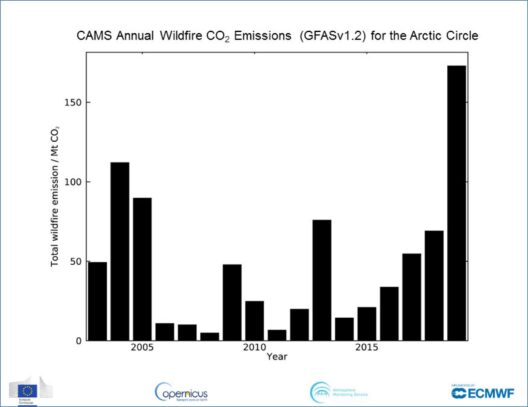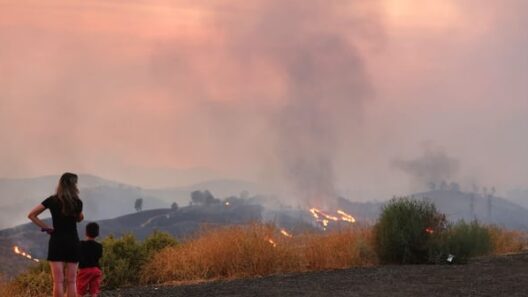Indonesia, an archipelago of over 17,000 islands, is one of the most biodiverse regions on the planet. This unique geographical configuration offers both immense potential and responsibility when it comes to environmental stewardship. With its rich ecosystems, Indonesia possesses the capacity to be a leading force in the fight against global warming. However, to harness this potential, concerted efforts must materialize, not just from the government, but from every sector of society. Through collaboration, innovative solutions, and a steadfast commitment to sustainability, Indonesia can forge a green path toward mitigating the impacts of climate change.
One crucial aspect of addressing global warming in Indonesia lies in the preservation of its forests. The nation is home to one of the largest tropical rainforests, which serves as a vital carbon sink. Deforestation, primarily driven by palm oil production, illegal logging, and land conversion for agriculture, poses an existential threat to these invaluable ecosystems. By adopting sustainable land-use practices, the Indonesian government can ensure the retention of these forests, which not only combat climate change but also support countless species of flora and fauna. Forest conservation initiatives can provide economic incentives to local communities, thereby linking environmental health with socioeconomic benefits.
Moreover, the importance of renewable energy cannot be overstated. Indonesia has a wealth of renewable resources such as solar, wind, and geothermal energy potential. Investing in this sector can significantly decrease the nation’s dependence on fossil fuels, which are currently the primary drivers of greenhouse gas emissions. The transition to renewable energy sources not only diminishes CO2 emissions but also creates job opportunities, enhances energy security, and stimulates technological innovation. Collaborative partnerships between the government, private sector, and international organizations can pave the way for a robust renewable energy infrastructure.
The role of local communities in Indonesia’s green path cannot be neglected. Community participation is vital in fostering environmental stewardship. Indigenous populations possess traditional ecological knowledge that can inform sustainable practices and contribute to conservation efforts. Empowering these communities with training and resources can lead to organic farming, sustainable fishing, and eco-tourism, transforming local economies while protecting the environment. This holistic approach nurtures a sense of ownership over natural resources, crucially intertwining economic growth with ecological awareness.
Another dimension of Indonesia’s approach to combating global warming is urban development. Rapid urbanization often results in increased emissions as cities expand without proper planning. Smart urban planning that prioritizes sustainability is imperative. Utilizing green architecture, promoting public transportation, and emphasizing green spaces can mitigate urban heat and improve air quality. Cities like Jakarta, faced with dire pollution challenges, signify a need for innovative infrastructure that harmonizes urbanization with ecological responsibility. Collaboration among architects, urban planners, and policymakers can result in transformative urban spaces that prioritize the well-being of both nature and its inhabitants.
The Indonesian government has taken steps toward policy frameworks that align with climate goals, yet the implementation remains inconsistent. International cooperation can invigorate these efforts. Indonesia, as a member of global accords such as the Paris Agreement, has external obligations to uphold its emissions reduction targets. International funding mechanisms aimed at supporting developing nations can facilitate Indonesia’s transition towards a greener economy. Emphasizing accountability and transparency in how these resources are utilized can foster trust and effectiveness in addressing climate change.
Education also plays a pivotal role in Indonesia’s green future. Raising awareness about the impacts of climate change and fostering a culture of environmental responsibility from a young age can yield long-term benefits. Integrating environmental education into the school curriculum can nurture a generation attuned to sustainability. Engaging youth in initiatives such as tree planting, clean-up drives, and environmental campaigns can create a grassroots movement that amplifies the call for action against climate change. Such initiatives foster a sense of agency among young people, encouraging them to be proactive participants in their communities.
Furthermore, technology can serve as a catalyst for change. Innovations in agricultural practices, waste management, and resource conservation present opportunities to curb emissions. Employing digital platforms for advocacy, awareness, and engagement can galvanize action across diverse demographics. The proliferation of green technology industries can foster economic progress while ensuring environmental integrity. Stakeholders must prioritize research and development to discover new methods for reducing environmental impact.
The nexus of climate change and social equity must also be addressed. Vulnerable communities, often the most affected by climate-related disasters, require adaptive measures to build resilience. The impacts of sea-level rise, extreme weather, and food security threaten the livelihoods of many Indonesians. Programs that integrate social justice with climate action can ensure that marginalized voices are heard, and that solutions include everyone in the discourse. By creating adaptive strategies that acknowledge the unique circumstances of these communities, Indonesia can build a resilient society capable of withstanding the challenges posed by global warming.
In conclusion, Indonesia’s unique position allows it to play a pivotal role in combating global warming. Through a multifaceted approach that encompasses forest conservation, renewable energy investment, community involvement, sustainable urban development, international collaboration, educational outreach, technological advancements, and social equity considerations, the nation can cultivate a sustainable future. This green path necessitates commitment, cooperation, and innovation at every level of society. Together, we can work towards a climate-resilient Indonesia that sets a profound example for the global community in the battle against climate change.







